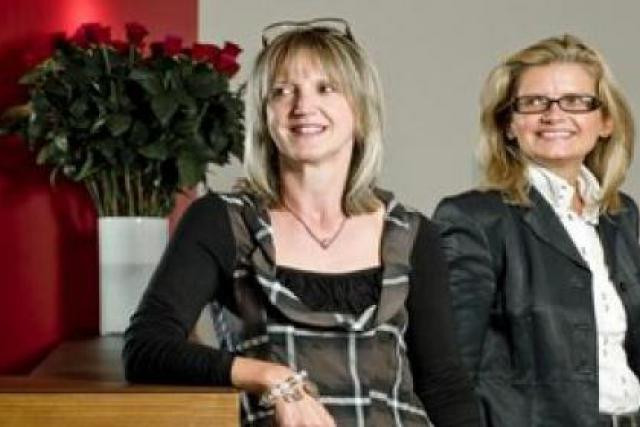“This is not a scientific approach, and nor would we like to claim that it is,” says Yvonne Nowak-Sikora on the Amcham seminar put together by herself and Marie-Brigitte Bissen, entitled “So you want to be a great HR director. What’s next?” They are well qualified to talk about HR and, as Paul-Michael Schonenberg so eloquently put it in his introduction to the event, are able to “walk the walk as well as talk the talk.” While Nowak-Sikora is currently head of HR at Commerzbank, Bissen, after many years working in the HR field, is executive coach and HR development consultant at her own company, Evolution Plus. Rather than carve a set of rules in granite, the aim of the seminar was, in the words of Nowak-Sikora, to “highlight the competencies we see as important for the HR director now and in the future.” And while there is a feeling around Luxembourg that the financial crisis has begun to ebb, neither Bissen nor Nowak-Sikora believe that good HR practices for the future cannot be informed by the present. Lessons must be learnt and applied, but one thing is for sure: responsibilities have undergone a transformation in several aspects of organisational behaviour, and HR is no different. In fact, as well as its principal title, the seminar was tag-lined “sparkling ideas with sparing partners”. What sparkles is the positivity. But what is spared? Costs, blushes and feelings, it would appear.
“HR is in a sensitive position,” says Nowak-Sikora. In these times of genuine awareness of corporate social responsibility, she emphasises the status of the function as the “conscience of the company which must deal with growing social tension.” The role can no longer use a one-size-fits-all approach and must deal with the long-term, keeping the strength to say no to “short-term result orientation.” In keeping with the challenges facing directors, as well as being aware of the long-term, they must also “proactively sense changes and act as a social and cultural barometer for an organisation, being creative and innovative while being able to negotiate and show emotional intelligence,” states Nowak-Sikora. Opportunities must be equal in deed and thought, but also in action and execution. Thus, HR becomes the “guardian of corporate vision and values, where organisations are a microcosm of our society.”
Macro to micro
While the role of the HR director within an organisation is thus assessed and covered, what of the skills required to carry out that role? Bissen takes up the baton: “Human Resource personnel require true communication skills. They must be adaptable, and able to communicate in a variety of different styles.” She highlights the difference between informing and communicating, the latter encompassing empathy and trust as well as sharing information. As she continues, “the paternalistic, one-way approach is a thing of the past. Communication is about a range of qualities, spoken and physical, that make for an effective organisation.” In a development that may seem startlingly obvious on the surface, Bissen states that directors need to be aware of the needs of staff, and the need to make employees happy. She highlights the “generation Y” phenomenon of leaving a company for one reason or another and then seek to return at some stage down the line. Where an organisation may previously have rejected the returning candidate out of hand for a perceived lack of loyalty, Bissen believes that now companies are considering what extra skills they could have learnt, and therefore bring to the company, in that time away.
To call the HR director an intermediary seems almost a cliché, yet to operate effectively that is what they must be: if there is a lack of trust between them and the upper-echelons of the company hierarchy, it will automatically affect communication. Similarly, that trust must be present in dealings with other employees.
In a sense, good practices in that domain are like walking a tightrope between the two, all the while maintaining transparency. So how can they be improved? Bissen believes benchmarking and networking are key to enhancing quality and ensuring lasting competitiveness. Coaching can also be of real benefit.
What does it boil down to? The HR director of the future needs to be able to read the signs and act accordingly. They need to be aware of the business and financial practices governing their organisation, and maximise what is available to them. Perhaps most of all, they need to encourage the transfer and exchange of knowledge and know how to trust and be trusted in return. Therein lies the juggling act, and therein lies the challenge.
